Hello!
So you’ve got a great website with awesome content, fantastic products, and a great user interface. But you barely have any visitors. If you’ve ever owned a website, chances are this has happened to you at some point. The good news is that it’s not just you.
The bad news is that with well over 1.8 billion websites in the world and more being added by the second, a great website isn’t enough.
It’s crucial that you have a strong SEO strategy so your website gains visibility. But frequent search engine algorithm changes and the intense competition between sites make an already complex task even more demanding.
But with more than half of all global web traffic coming from search engines, it’s not a process that can be ignored.
Let’s take a look at some of the best tools that can help you solve that challenge.
#1 SEMrush
SEMrush is actually more like a suite of tools than a single service. But what it is most popular for is its extensive keyword research tool. Picking the right keywords is a critical factor in raising your search rankings and driving traffic to your site.
SEMrush’s keyword difficulty tracker will show you both the volume of searches for a particular word or phrase. It can also show you how difficult it will be to rank well for that term.
Ideally, what you want is a term that is searched for a lot, but which has relatively low competition.
SEMrush takes some of the uncertainty out of picking your keywords and helps you optimize your content much more efficiently.
Forgetting to track your SEO results is one of these SEO mistakes you want to avoid. When working on your SEO strategy, it's essential to track your results and SEMrush is great to do so.
#2 Pro Rank Tracker
A good rank tracking tool is an essential part of an SEO toolkit. Search rankings are constantly being updated and can change significantly each time a search engine alters its algorithm.
A rank tracker can show you where you stand and also help you discover what you can do to improve your rankings.
Pro Rank Tracker allows users to track their site rankings across multiple search engines.
It also includes the functionality to let users track their rankings across various geographic regions, right down to the local city level. This is great for small businesses that want to focus on ranking well only in a small area.
For YouTubers, Pro Rank Tracker also includes rank tracking for videos to help you optimize your content for YouTube.
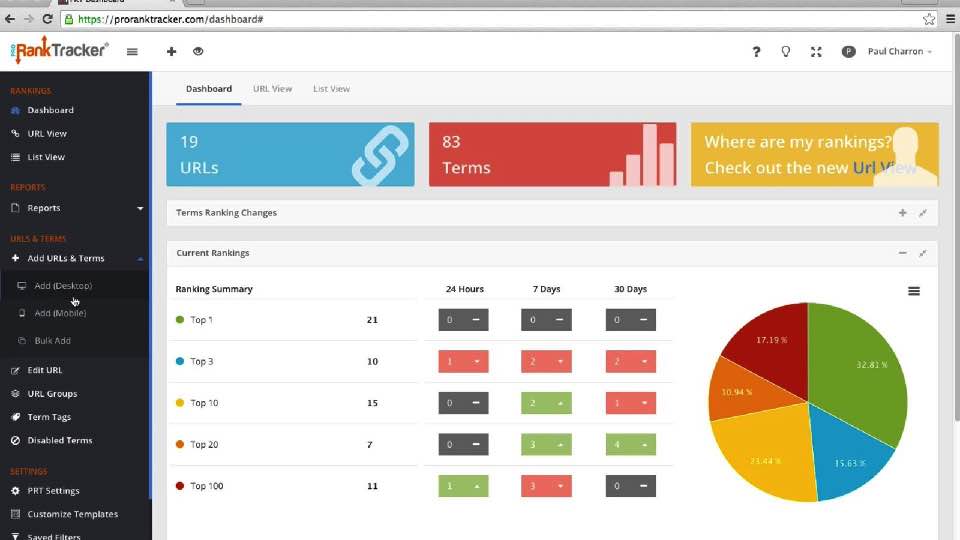
#3 KWfinder
By finding the right keywords, you will dominate SEO in no time and upscale your business with free organic traffic. KWfinder is a good option if you’re looking for a dedicated tool to help you find potential keywords and analyze their performance. KWfinder is extremely user-friendly and getting started takes no time at all.
KWfinder is specialized in helping you to find good long tail keywords for your site or content. At a glance, it can show you total search volumes and the current competition for the term you’re searching for. It also provides a list of additional related keywords so you can quickly review your options and discover possibly better alternatives.
One additional feature that will be great for small business owners is the inclusion of a function that allows users to sort keyword performance and competition based on location. This is great if you’re only looking to have your keywords perform well at a regional level and not worry about how you stack up in global ratings.
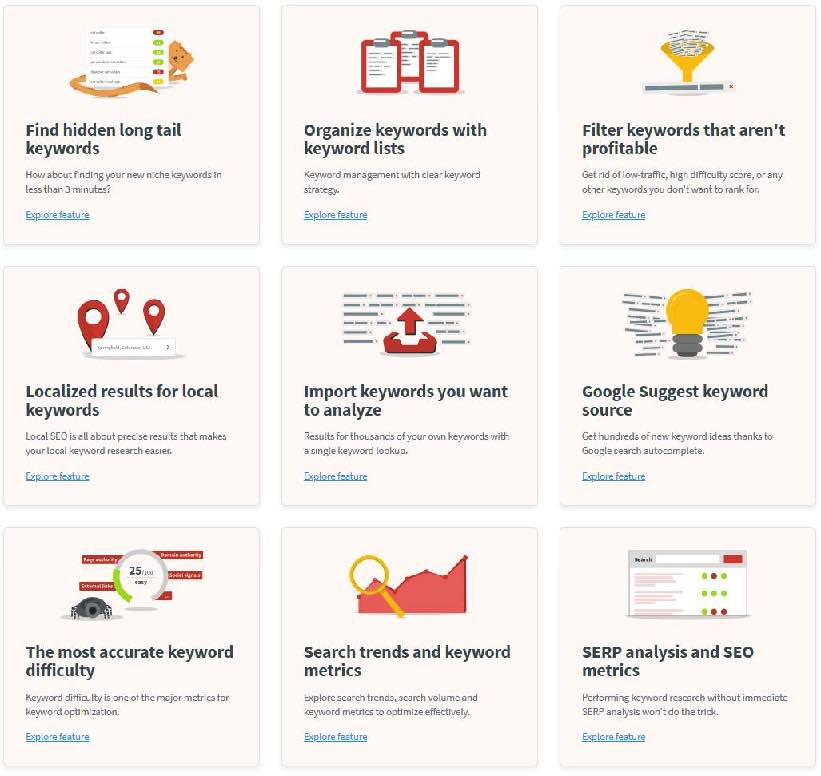
#4 Ubersuggest
A final option for keyword selection is Ubersuggest. The tool is fairly simplistic and doesn’t offer the extensive customization options or added functionality of other dedicated keyword analysis tools. However, the basic functions it does have work really well, and for the price of “completely free”, that’s not bad at all.
Provided by online marketing mogul, Neil Patel, like most other keyword tools, Ubersuggest provides search volumes for various terms, the competition for each keyword and an estimation of the “cost per click” for that keyword. It also does a pretty good job of listing other related keywords you may be interested in and their respective performance.

#5 SpyFu
SEO isn’t just about what you do on your site. It’s also about what the competition is doing. More specifically, it’s about finding out how to outdo your competition.
SpyFu can help you perform a comprehensive competitor analysis, particularly on keyword usage and link building. It’s not always easy to determine what keywords are being targeted. But SpyFu can help you get a clearer picture of how your competition is driving traffic to their website.
A competitor analysis is often a tedious and time-consuming task, which is why it is often overlooked. However, with an automated tool to help you, you can complete this important but challenging function of your SEO research in no time.
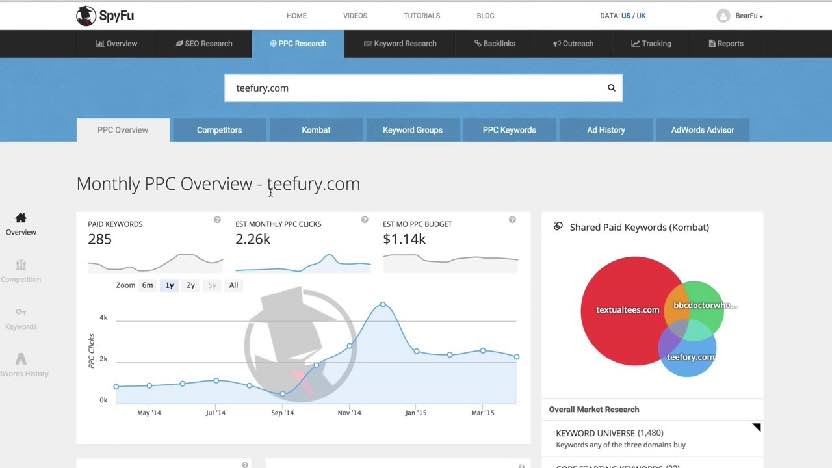
#6 BuzzSumo
While most SEO tools are designed to help you optimize your content to draw more search traffic, BuzzSumo takes a different approach.
While other SEO tools can help you tweak your content for maximum impact, BuzzSumo helps you discover what’s worth creating content about. This is a service designed to help you discover topics that are currently trending on search engines or social media.
The service is primarily aimed at writers or vloggers, who use the service to come up with new content ideas. However, businesses can also benefit from this service as well by incorporating trending topics or media into their content.
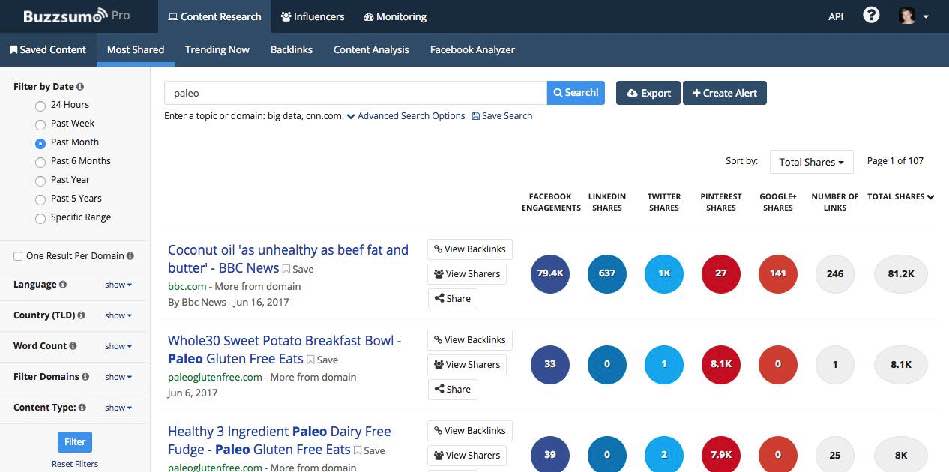
#7 ContentStudio
ContentStudio is primarily a content discovery and curation tool, similar to BuzzSumo. You can search for content from multiple online sources like Facebook, Twitter and YouTube based on various themes or custom keywords. Alternatively, you can look at stories that are currently trending to better understand what you can consider basing content on that would perform well.
But where ContentStudio distinguishes itself is in its social media suite. With ContentStudio you can centralize most, if not all of your social media platforms into a single unified platform.
From here you can curate content, plan social media posts and publish them to the accounts you have linked. You can also schedule posts for automated publishing. This allows you to follow your content calendar, even if you don’t have time to plan and publish social media posts every day.
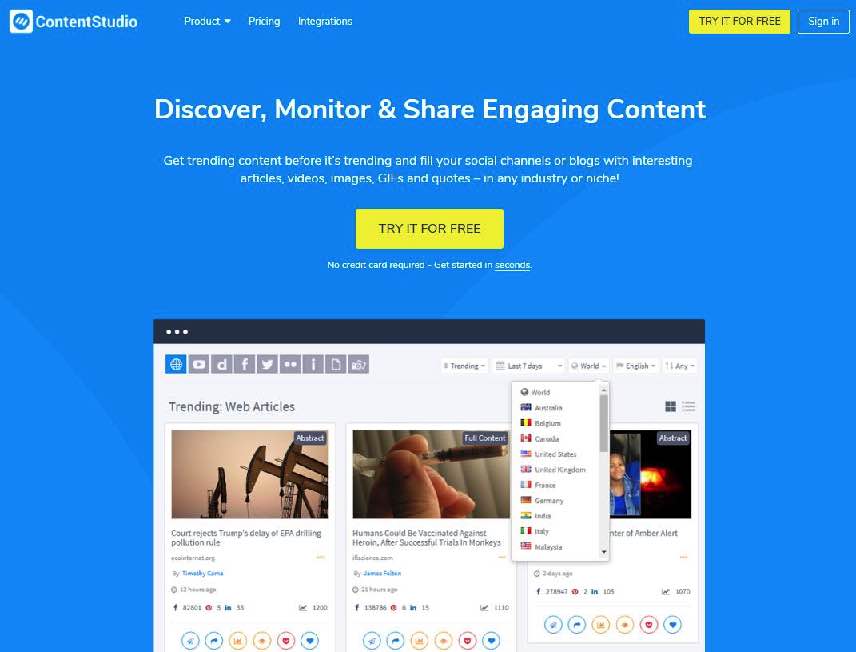
#8 JetOctopus
If you’ve been running your website for a while, it’s probably gone through a few changes over the years.
Over time, this can lead to a lot of old outdated pages and broken links that are no longer needed. This can make it difficult for search engine crawlers to index your site, which can hurt your site’s rankings.
JetOctopus is a site crawling service that can help you track down and fix a variety of errors that you may have on your site. Their USP is that they use cloud technology to speed up the site crawling process, allowing them to scan large websites in a very short amount of time.
#9 Screaming Frog
Screaming Frog is a good tool to help you tidy up and optimize the back-end of your site. Like JetOctopus which we mentioned earlier, it allows you to crawl your website. The goal is to track down broken links, page loading errors and a whole host of other issues.
More recently Screaming Frog has also started offering a host of additional SEO and marketing services. Focusing on the SEO products, they offer link building services, Google analytics integration and keyword research tools.
They also provide a personal consultancy service to help sites recover from ranking penalties they have received from search engines. And given how often search engines change their algorithm’s behavior, this is a service many website owners are likely grateful for.
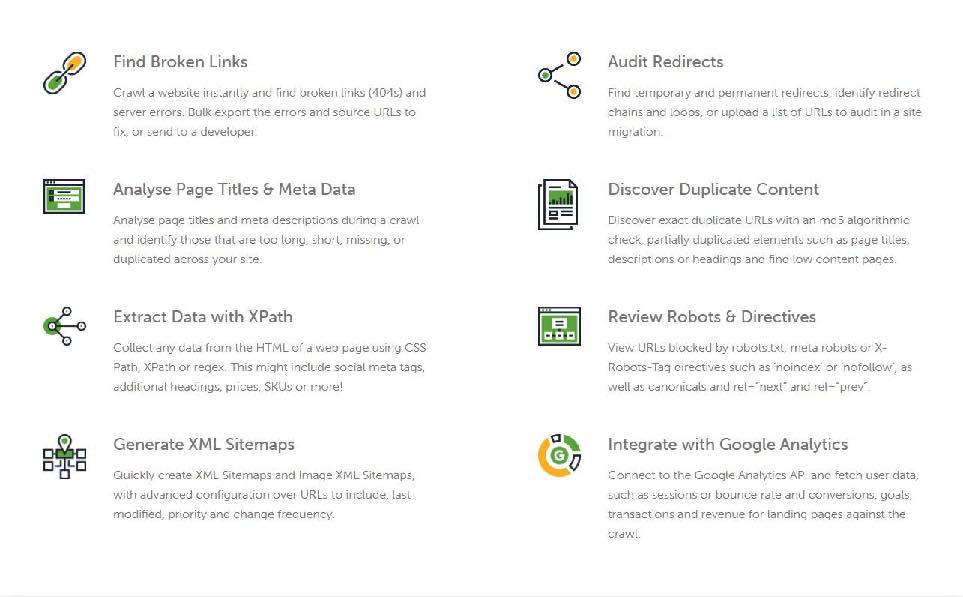
#10 Moz
Another SEO tool suite and a popular alternative to SEMrush, Moz touts itself as a one-stop shop for all your SEO needs.
They offer rank tracking, link building, site crawling, and on-page optimization services. But is probably most well-known for its keyword research tool. Moz has pricing plans designed to cater to everyone from small business to large enterprises.
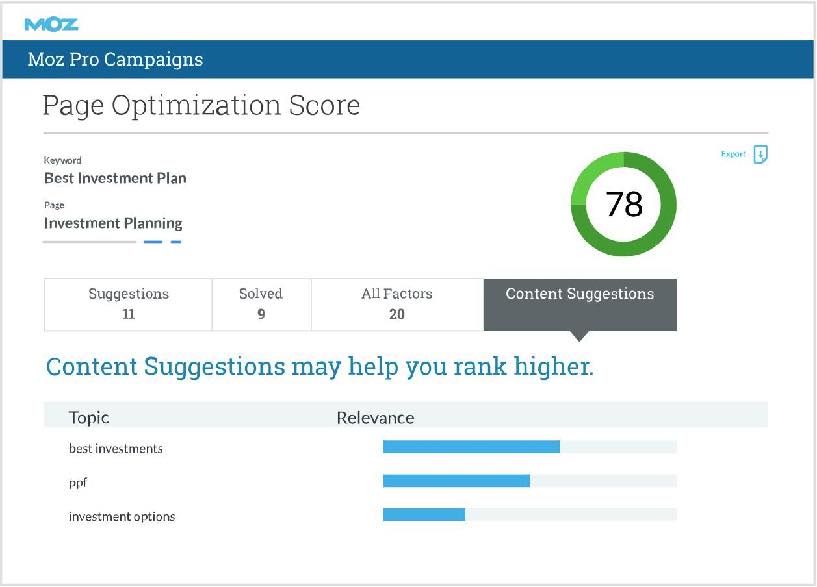
#11 Yoast Tools
Last on this list is a name that is probably familiar to most of you already. If you’re an SEO novice, it’s a good place to start. The key selling point with Yoast is its simplicity, with user-friendly tools and great support available to help get you going.
The other big point to note is that it’s available as a WordPress plugin. This is great since if you’re a blogger or a small business owner, it’s likely that you’re hosting your website on WordPress.
This makes it much easier to integrate the Yoast tools into your site and learn how to optimize your content and web pages.
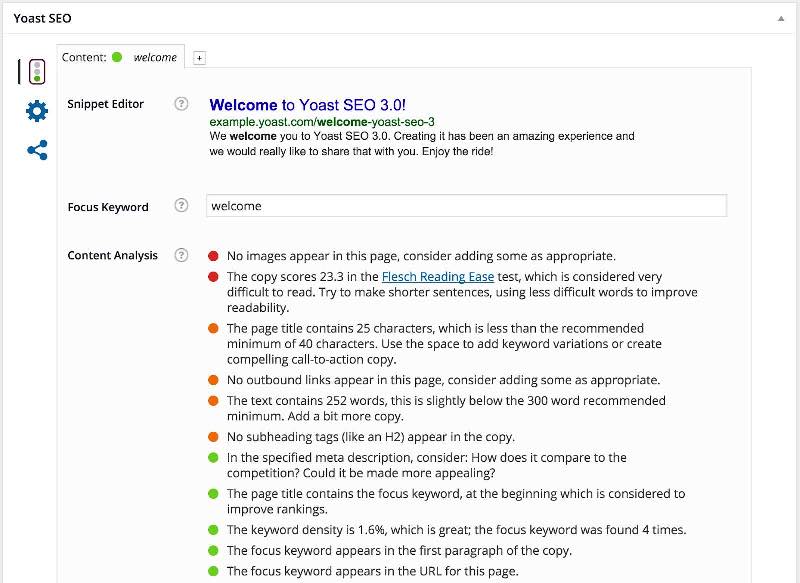
So, how to use these great SEO tools to boost your traffic?
So, there you have it. These are some of our top picks for the most effective SEO tools currently on the market. Whether you use these tools to SEO-optimize your blog posts or to write better product descriptions for SEO, you need to have a strategy in place.
If you’re just getting serious about SEO, picking the right combination of complementary tools will take time. But when you’re done, you’ll have all of the tools you need to give your site or business a serious visibility boost online.
What do you think of our list? Do you have any suggestions for great SEO tools that we may have overlooked? Let us and your fellow entrepreneurs know about them in the comments.
About this theme:
- TikTok SEO: A Simple Guide to Rank Your Videos
- WooCommerce vs. BigCommerce – What’s Better for SEO?
- Which Link Building Strategy Is Best For SEO?
- Intro to SEO: Terminology and Metrics
- What is Orphaned Content And How It Can Affect Your SEO?
- How Does Website Security Affect Your SEO
Thank you!
Subscribe to our newsletter! Join us on social networks!
See you!






